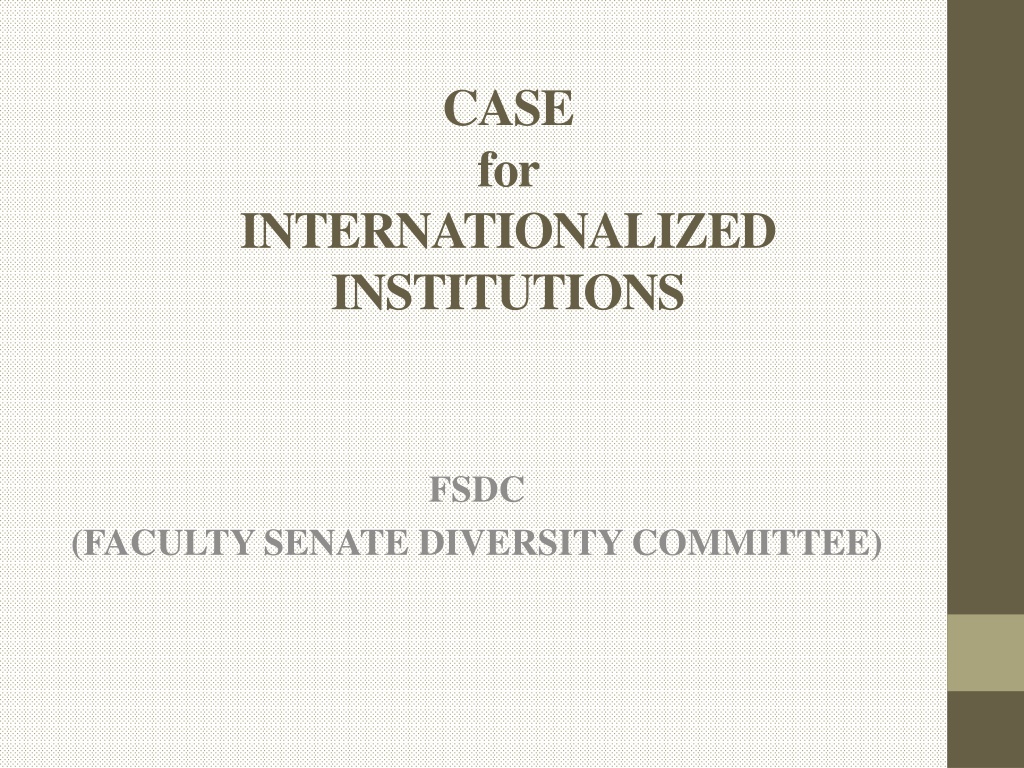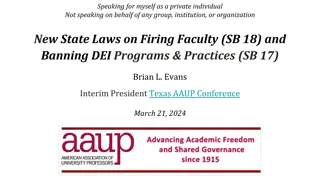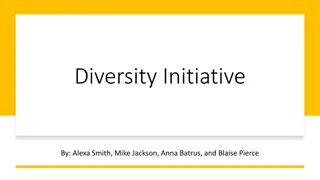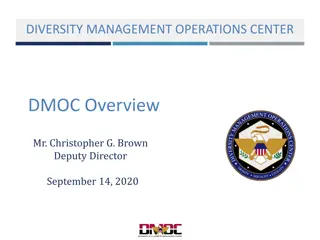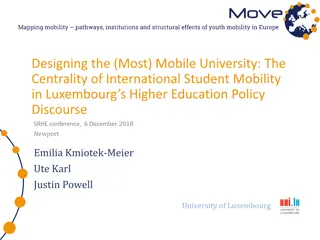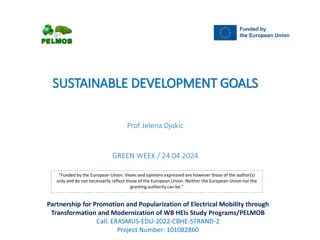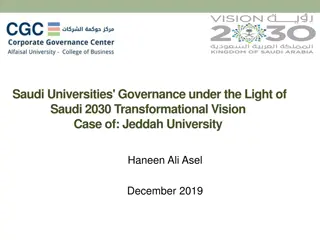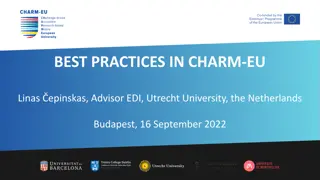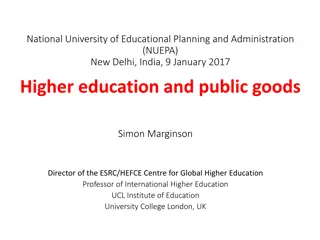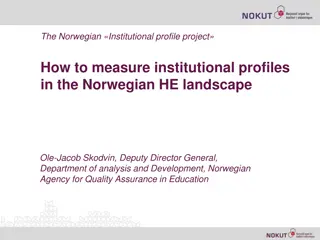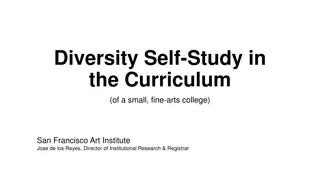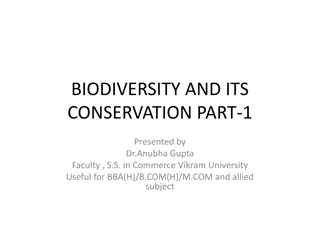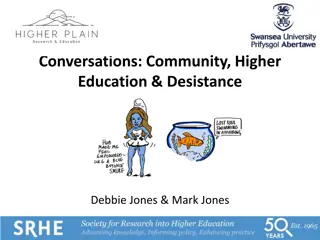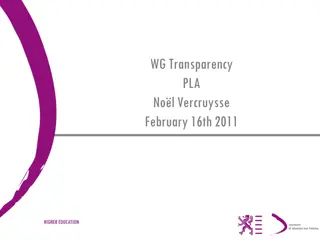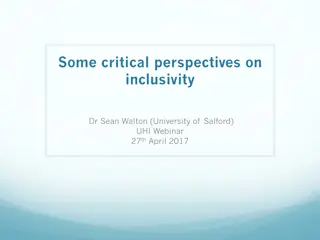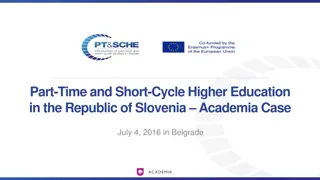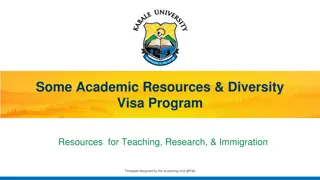Enhancing International Diversity in Higher Education: A Case Study
This case study focuses on the Faculty Senate Diversity Committee's efforts to promote internationalization within institutions by highlighting the impact of international students, faculty, and key themes from dialogues with international faculty. It emphasizes the economic contributions of international students, the importance of supporting and integrating international faculty, and key recommendations for strengthening relationships and fostering a welcoming environment. The study also delves into the stages of internationalization, emphasizing faculty involvement, senior administrative support, collaborative leadership, and unique factors specific to the institution. Overall, the study underscores the significance of global perspectives in a diverse academic environment.
Download Presentation

Please find below an Image/Link to download the presentation.
The content on the website is provided AS IS for your information and personal use only. It may not be sold, licensed, or shared on other websites without obtaining consent from the author. Download presentation by click this link. If you encounter any issues during the download, it is possible that the publisher has removed the file from their server.
E N D
Presentation Transcript
CASE for INTERNATIONALIZED INSTITUTIONS FSDC (FACULTY SENATE DIVERSITY COMMITTEE)
RATIONALE Local Impact Institutional Strength Understanding and Appreciating Different Cultures The ONE we are The Superior one We are The Universal we are We are one of the, We are like them We are them Survival and Success in a Global Environment Appreciating One s Own Sense of Place and Narrative (E) Knowledge Creation Source: This section draws from https://www.acenet.edu
ECONOMIC IMPACT ALASKA s SHARE Contribution of International Students to US Economy: $27 Billion. Alaska s Share = $13.7 Million. Or, about 5 cents per $100 . Lowest # (and as a percent of state population) of international students Lowest # jobs created 542 students out of about total 900,000 international students Source: www.nafsa.org/policy
OTHER IMPORTANT CONSIDERATIONS Likely correlation between # international students and # international faculty International faculty contribute to diversity and as well as globalized campus efforts
Major Themes from the Dialogue with International Faculty Hosted by FSDC Recommendations to improving/strengthening relationship with faculty colleagues and administration Strengthen the faculty governance process (SR) Make international faculty feel more welcome by having more established department faculty reach out to them regularly (SR) Department chairs should help orient/support international faculty members (SR) Improve human resources (HR) support for international faculty by having HR designate a specialist to address international faculty concerns (SR) Provide mentoring to international faculty at the institutional level (SR-MR) Create a faculty club/Organize regular social events for international faculty and family (SR-MR)
STAGES of INTERNATIONALIZATION Faculty Involvement Faculty Support and Development Senior Administrative Involvement Collaborative Leadership Visible Action Other Factors Unique to UAA Draws from: http://www.snc.edu/oie/documents/Reports_and_Presentations/Major_Reports/SNC_Internationalization_Case_S tudy.pdf
CONCERNS State Fiscal Constraints Administration Buy-In Global Trends Black Swans
UAAs UNCHARTED TERRITORY https://www.uaa.alaska.edu/iil/taskforce/ https://www.uaa.alaska.edu/iil/laboratory/upload/UAA-ACE-Lab-Report-Final-1.pdf https://www.uaa.alaska.edu/iil/taskforce/upload/2011_2012_IFFTF_Final_Report.pdf https://www.uaa.alaska.edu/iil/taskforce/upload/ACE-Peer-Review-Itinerary-April-5-6.pdf https://www.uaa.alaska.edu/international-student-services/ https://www.uaa.alaska.edu/oiia/index.cfm
CASE/JUSTIFICATION for ACTION PLAN Section E in Guidance for Academic Decisions in a Climate of Declining Budgets, AY 2016 17
